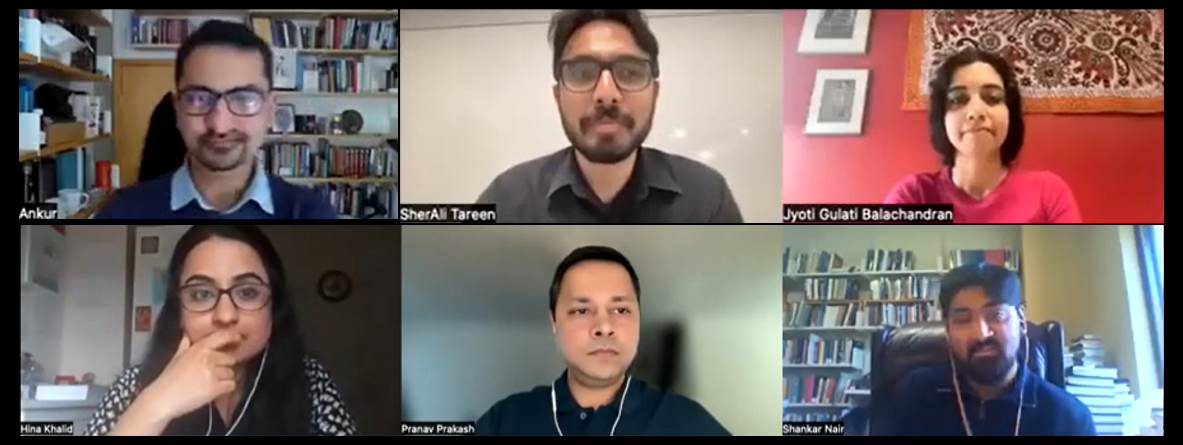
Submitted by Iona C. Hine on Wed, 31/05/2023 - 11:56
In April 2023, Dr Ankur Barua and Hina Khalid convened an online series on the topic of Inter-religious relations in South Asia, together with Dr Pranav Prakash (Christ Church, Oxford). Zoom recordings from four sessions are now available to watch again on the Faculty of Divinity YouTube channel.
Learn more about each paper, and watch them below, or bookmark the YouTube playlist to watch them later.
A Bhakti Mahabharata for Aurangzeb?
Dr Sohini Sarah Pillai is Assistant Professor of Religion and Director of Film and Media Studies at Kalamazoo College. Opening the colloquium, she gave a paper on Sabalsingh Chauhan's 17th-century adaptation of the Mahabharata. Chauhan wrote prologues to eleven of the poem's eighteen books--taking the occasion to praise the Mughal emperor Aurangzeb. Learn why this is surprising and what it might tell us about Muslim-Hindu relations.
Contests over the boundaries of Hindu-Muslim friendship
SherAli Tareen is the author of Perilous Intimacies: Debating Hindu-Muslim friendship after Empire (Columbia University Press). Drawing on that work, his colloquium contribution focused on conceptual problems and questions around the study of interreligious encounters in early modern and modern South Asia. What do we gain, he asks, by paying attention to intra-Muslim contest over the boundaries of Hindu-Muslim friendship?
Socio-political dimensions of spiritual practice in Gujarat
Jyoti Gulati Balachandran is Edward J. and Eleanor Black Nichols University Endowed Fellow in History and Associate Professor of History at Pennsylvania State University. In this paper, she takes the diversity of Islamic spiritual practice in 15th-century Gujurat as a starting point. Exploring intra-religious interaction with reference to Sufi communities, Jyoti brings into focus the material underpinnings, and political and socio-economic contexts of their relations.
Rāma and Sītā as Adam and Eve
In the closing paper Shankar Ayillath Nair considers how the Ramayana epic was adapted for Persian romance. For Muslim poet Panipati, the Ramayana’s “ogress” Surpanakha embodied the full range of possibilities of the human condition, sublime and ruinous. Meanwhile, Shankar’s analysis suggests, Rama and Sita stand in for the prophetic exemplars of Adam and Eve.
About this series
View the full schedule of talks on the initial event listing. The archived page also explains the organisers’ aspirations.
Unfortunately the first and third scheduled talks had to be cancelled. We hope the intended speakers will participate in future events and so continue the rich conversations begun in April.
